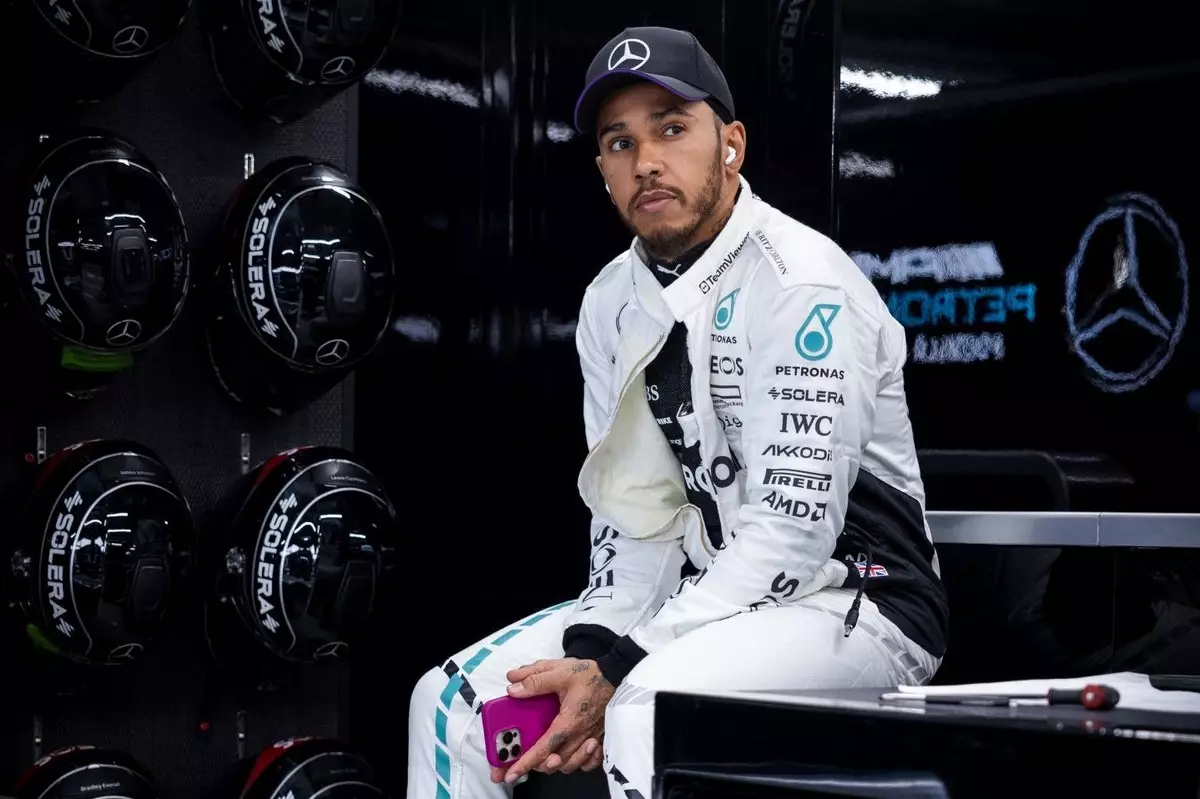As the current Formula 1 season wraps up, the racing world has turned its gaze towards Lewis Hamilton and his turbulent relationship with the Mercedes W15 car. Throughout the season, Hamilton has faced inconsistency in performance, especially when compared to his teammate, George Russell. This disparity was starkly evident during the Qatar Grand Prix, where Hamilton’s race was marred by a series of misfortunes, culminating in an uncharacteristic 12th place finish. A jump start, a puncture, and a drive-through penalty for speeding in the pit lane compounded to create a weekend to forget. This season is clearly a challenging moment for the seven-time World Champion, forcing him to confront a reality where he admits, “I’m definitely not fast anymore,” during a candid moment in Qatar.
Hamilton is approaching the final race of his long-standing partnership with Mercedes, set to unfold in Abu Dhabi. This event is not just another race; it marks the conclusion of a decade-long relationship that redefined modern motorsports. Amidst personal admissions of struggle, team principal Toto Wolff notes the emotional complexity of this transitional period. While Hamilton’s current performance may raise concerns, Wolff emphasizes that the overwhelming successes achieved over the past twelve years create a legacy that overshadows present difficulties. The collaboration at Mercedes has seen Hamilton amass eight constructors’ championships and six drivers’ titles, a remarkable feat that will remain in both the team and the driver’s history.
Despite the upheaval within the Mercedes team this season, Fred Vasseur, the team principal of Ferrari, remains unfazed by Hamilton’s struggles. Vasseur, who has a long-standing respect and admiration for Hamilton, points out that outstanding performances throughout the season, particularly Hamilton’s impressive drive from 10th to 2nd place in Las Vegas, showcase his enduring skill as a driver. He dismisses concerns over Hamilton’s recent self-critique, indicating that the intrinsic abilities of a driver like Hamilton cannot be easily diminished by a single challenging season. This perspective highlights the subjective nature of performance in motorsport; a single race does not define a driver’s career.
As Hamilton prepares for new ventures beyond Mercedes, the Formula 1 community is abuzz with speculation. His transition to Ferrari, amid the competitive landscape, presents both challenges and opportunities. Vasseur hints at a collective understanding of the future among racers and teams, recognizing the importance of preparing for the inevitable shifts within the sport. “When the decision was made,” Vasseur notes, “we knew it would be a bumpy year, and it’s normal to encounter challenges.” This acknowledgement of the cyclical nature of performance and change in F1 is crucial for both drivers and teams, as they adapt to the ever-evolving dynamics of racing.
As the final race nears, reflections on Hamilton’s legacy are inevitable. While the current season has been fraught with challenges, it is equally significant to recognize the emotional stakes involved. Wolff articulates a somber yet appreciative view, emphasizing that despite the ups and downs, both Hamilton and the team have navigated this difficult terrain with dignity. When this season concludes, the memories of triumph, teamwork, and the extraordinary journey they embarked on together will take precedence over the trials of the current campaign.
Lewis Hamilton’s future in Formula 1 is about much more than lap times and championship standings. It encapsulates the essence of evolution in motorsport, where performance ebbs and flows, victories shine a light on past achievements, and personal growth takes center stage. As he transitions to Ferrari, the racing world awaits not just to see how he will adapt to new machinery but also how he will continue to inspire generations of drivers to come. Hamilton’s story is a testament to resilience, legacy, and the ever-persistent pursuit of excellence in the adrenaline-fueled world of Formula 1.


Leave a Reply